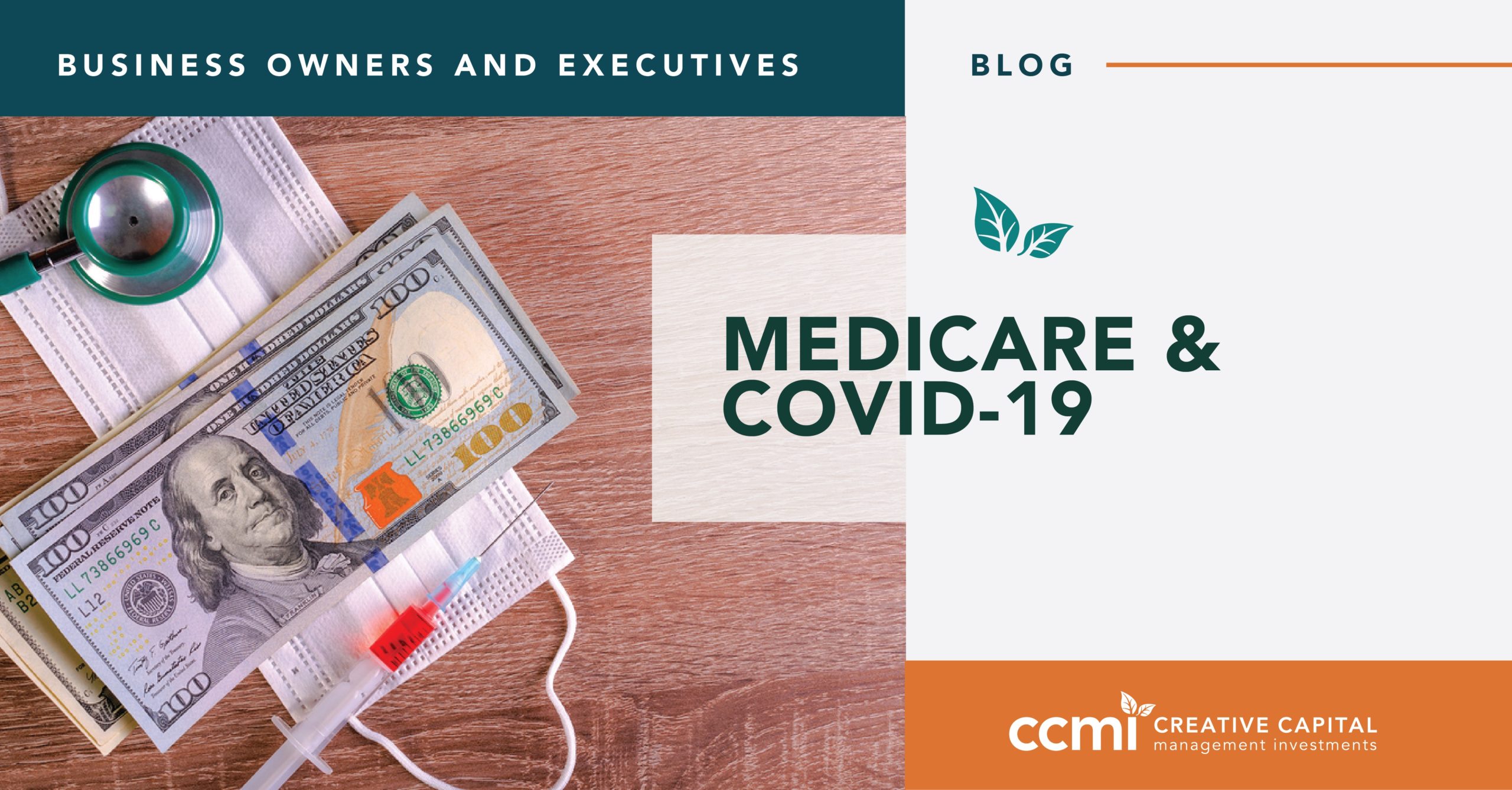While we hope that at some point a therapy and ultimately a vaccine will be developed to address the COVID-19 pandemic, we must also prepare for the possibility that large segments of the population may have to endure the physical effects of the virus. As planners, we want to share how health insurance plans, and particularly Medicare, will cover the necessary care and how much patients might have to pay in out-of-pocket costs should they need testing, hospitalization and/or extended treatment of COVID-19 symptoms. Elaine Floyd is an expert in Medicare and Social Security planning and we’ve summarized below several key items that she recently published.
Private insurers have been mixed in their response to the coronavirus. Many of them are waiving out-of-pocket costs in connection with testing, but not the services that go along with it. Patients should check their individual policies to determine how much they would have to pay in deductibles, copayments, and coinsurance amounts should they need COVID-19 testing, outpatient treatment of symptoms, or hospitalization.
Original Medicare
Medicare, which offers very comprehensive coverage when combined with a supplemental policy (Medigap) and a prescription drug plan, has broadened its coverage of services related to COVID-19. Here’s what it covers:
Testing. Medicare covers COVID-19 lab tests as well as services in connection with such tests including physician visits, outpatient observation, and emergency department services. There will be no deductible or other out-of-pocket costs for testing.
Hospitalizations. Medicare covers all medically necessary hospitalizations under Part A, including any period of quarantine if you’re diagnosed with COVID-19 and might otherwise have been discharged from the hospital after an inpatient stay, but instead are required to stay in the hospital under quarantine. Medicare covers 60 days of hospitalization after the Part A deductible of $1,408 has been paid. For days 61-90, there is a coinsurance cost of $352 per day. But patients with supplemental insurance would pay nothing because all Medigap policies cover the Part A deductible and hospital coinsurance costs for 365 days after Medicare benefits are used up.
Skilled nursing. Medicare generally covers up to 100 days of skilled nursing following hospitalization. During this crisis the hospitalization requirement is waived if patients need to be admitted to a skilled nursing facility to make room at hospitals. After the first 20 days in a skilled nursing facility, there is a daily coinsurance amount of $176; most Medigap policies pick up that additional cost for days 21 through 100. There is no skilled nursing coverage after the 100th day.
Vaccines. At this time, there’s no vaccine for COVID-19. However, if one becomes available, it will be covered by all Medicare Part D prescription drug plans.
Telehealth. Medicare has expanded its coverage of telehealth services, which allow for doctor visits via computer or smart phone. Telehealth will be covered under Part B for all traditional Medicare enrollees during the virus crisis, and services are not limited to COVID-19 care. The definition of telehealth has also been expanded. Previously, patients were required to connect from a health facility, such as an outpatient center, that had approved video conferencing technology; now, patients will be able to connect from home via video on a smartphone or other digital device.
Outpatient services. Other medical services a client might need in connection with or apart from COVID-19, including physician visits, emergency ambulance transportation, and emergency room visits, would be covered under Part B. There is an annual deductible of $198 and a coinsurance amount of 20%. Most Medigap policies cover the full 20% coinsurance. Plans F and C (no longer sold to people turning 65 after 2019) also cover the deductible.
Medicare Advantage and Part D drug plans
Medicare Advantage plans are required to cover all care under Parts A and B, but might impose different costs or restrictions. The government declared a national public health emergency on January 31, in part to impose special requirements on Medicare Advantage and Part D plans. These requirements were later legislated by the CARES Act, which was signed into law on March 27. Under these requirements the plans must:
- Allow beneficiaries to receive health care services at out-of-network doctors’ offices, hospitals, and other facilities without additional charges.
- Waive gatekeeper referral requirements.
- Suspend rules that require beneficiaries to tell the plan before obtaining certain kinds of care or prescription drugs, if failing to contact the plan ahead of time would limit access to care.
- Cover the maximum supply of drug refills if requested.
Part D plan sponsors are also required to ensure that enrollees have adequate access to covered Part D drugs at out-of-network pharmacies when enrollees cannot reasonably be expected to use in-network pharmacies. Part D plans may also relax restrictions they may have in place with regard to various methods of delivery, such as mail or home delivery, to ensure access to needed medications for enrollees who may be unable to get to a retail pharmacy.
Age 65+ and still employed?
There are two groups of people who may take this opportunity to switch from employer coverage to Medicare. The first are those who have lost their jobs—and their health insurance—due to the coronavirus crisis. The other group consists of people whose employer insurance is not as comprehensive as Medicare, particularly high-deductible plans and those with high out-of-pocket maximums. A person with such a plan who contracts COVID-19 could be on the hook for thousands of dollars in medical expenses should hospitalization and intensive care be needed. In times of crisis, often Medicare is the best health coverage to have.
Transitioning to Medicare
Fortunately, the transition to Medicare is easy. If you are 65 or older and still working or newly terminated, you fall into a special enrollment period which allows you to enroll in Medicare at any time (up to eight months after the employer insurance terminates). From there, you simply follow the steps to enroll in Medicare through the Social Security Administration.
Unlike employer plans, which are primarily designed for younger, healthier people for whom illness is rare, Medicare was designed for older people who tend to encounter more health problems as they age. When paired with supplemental insurance (Medigap) and a prescription drug plan, Medicare offers very comprehensive coverage. Once premiums are paid, there should be little or no out-of-pocket expenses for treatments related to COVID-19.
We hope this information is helpful to you, a colleague or a family member. With so much uncertainty surrounding COVID-19, it is helpful to know that you can be covered by either individual or employer coverage depending on your plan elections, or through Medicare for those who qualify. In either case, make sure you know what is covered and what your expected costs may be so that you can be financially prepared. If you have questions or want to determine how healthcare costs may impact your long-term planning, please give the CCMI team a call.
CCMI provides personalized fee-only financial planning and investment management services to business owners, professionals, individuals and families in San Diego and throughout the country. CCMI has a team of CERTIFIED FINANCIAL PLANNERTM professionals who act as fiduciaries, which means our clients’ interests always come first.
How can we help you?






